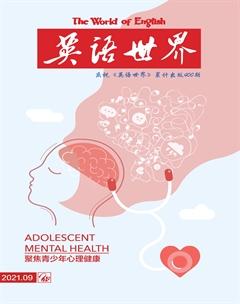Might the Pandemic Pave the Way for a Universal Basic Income?疫情可能为实行全民基本收入制铺路?
柴晚锁 武立红/译
When Andrew Yang1 began his campaign for the Democratic presidential nomination, his proposal for a “Freedom Dividend”—monthly cash payments of $1,000 to be paid to all Americans—distinguished him among a crowded field as an outsider and an unorthodox2 thinker. Nearly two years later, as Mr Yang leads the race for mayor of New York City, his plan to provide cash to half a million New Yorkers feels far less radical, and not just because it is much more modest than his idea for a national Universal Basic Income (UBI).
Though UBI still meets with skepticism in many quarters, the experience of the pandemic, and the accompanying explosion in social spending, have changed the tone of discussions about radical reforms to welfare states. Cash transfers—like those deployed by many governments during the pandemic—have come to look like an efficient, effective way to meet any number of social needs. Few schemes during the pandemic offered recurring payments to all. Yet, though the age of the UBI has not dawned3, the ordeal4 of COVID-19 could have brought it closer.
Arguments for universal-income payments have flourished for centuries. Thomas Paine5 argued that the Earth is common property, and everyone who makes use of its land and resources owes society a “ground rent”, which should fund the payment of a “natural inheritance” to all adults. Plans for universal payments, and the subtly different idea of a guaranteed minimum income, were a recurring feature of welfare debates in the 20th century. Yet by the end of the century concerns about freeloading and persistently high rates of joblessness across much of Europe led to reforms that made benefits stingier6 or more contingent7 on work.
Worries about inequality and the belief—especially among tech types—that robots and artificial intelligence might soon make many workers redundant led to renewed interest in basic incomes in the 2010s. Then came COVID-19. Restrictions on activity placed huge swathes8 of society in a position of dire9, urgent economic need. Governments responded with a fire hose10 of cash. From mid-March to mid-June more than 1.1bn people received cash payments, much of which was approved with little political opposition. Cash transfers accounted for about a third of all pandemic-related social-protection policies, according to the World Bank. Americas Congress passed a COVID-relief act in March 2020 containing a provision to send no-strings-attached11 cheques of up to $1,200 to most adults by near-unanimous margins (another round of cheques followed at the end of the year).
Residents in Japan about $950; most Singaporean adults roughly $425. Some governments experimented with payments that could be used only locally, through vouchers (as in Malta) or pre-loaded debit cards (as in parts of South Korea). But most simply sent cash.
Pandemic assistance itself will not evolve into sustained basic-income programmes. But the worlds experience with COVID-19 could still make their eventual adoption more likely. Polling suggests that young people in both America and Europe support UBI. Both Democrats and some Republicans have expressed support for an expanded child tax credit12 in America, which would provide cash with no strings attached to families on low incomes.
Finland, for example, conducted a trial in 2017–18 in which 2,000 randomly selected unemployed Finns were paid a modest income each month, roughly equivalent in size to unemployment benefits, which was guaranteed for the term of the trial.
Among the biggest worries relating to UBI is the possibility that it might discourage recipients from seeking paid work. Yet participants who received unconditional payments actually worked more than those on the dole13. Reported well-being was substantially higher among the experimental group; recipients reported lower levels of depression and stress, a higher degree of confidence in their abilities, and more social trust than did those in the control group14.
Transfer wise
Behaviour could shift as more members of society receive generous income payments: perhaps because of a “social multiplier effect” which reflects the fact that some activities become more enjoyable as more people engage in them. That is, UBI recipients in, say, the Finnish experiment might have been more inclined to seek work because being in work is more attractive (and not being in work less so) when most people are employed—a dynamic that could potentially change were income payments to become universal.
Much of the aid provided to households over the past year has been financed with new government borrowing, up to and including Mr Bidens proposals. As accommodating15 as markets have been of government borrowing over the past year, it seems unlikely that UBI dreams can be made real without the question of financing eventually being asked and answered.
Reality cheque
Some politicians are beginning to grapple16 with the issue. Mr Lee reckons that a small UBI in South Korea could be paid for by adjusting the existing budget, but he allows that increasing the generosity of payments would require additional money. Taxes on land, carbon emissions and digital services are his preferred funding mechanisms. Mr Yang, for his part, argues that a combination of curbing spending inefficiencies and philanthropic17 donations can pay for his proposed cash transfers (which would cover only the poorest New Yorkers).
But where the great welfare-state expansions of the mid-20th century were enabled by a spirit of solidarity and self-sacrifice, forged18 in depression and war, which made tax-financing of new benefits politically possible, the new enthusiasm for cash transfers owes more to a broad-based relaxation in concern about government borrowing. As the pandemic ends, that relaxed attitude may change as well, among some segments of the political spectrum19 at least. Only then will we learn how far along the path to a UBI the pandemic has actually moved society.
當初杨安泽加入民主党总统提名竞选时,曾提出一项“自由红利”主张,倡议每月向每位美国民众发放1000美元现金,从而以一个圈外人和不拘陈规的思想者在众多竞选人中脱颖而出。时隔近两年,杨先生参与纽约市市长竞选并领先于其他对手,此番他提出的向大约50万纽约市民支付现金的计划似乎远不及先前那么激进,而其原因绝不仅仅是该计划规模远小于在全国推行全民基本收入制(UBI)的计划。
尽管UBI在全球很多地方依然面临质疑,但疫情暴发和随之而来的社会支出井喷式增长让人们讨论福利国家锐意变革时的语气已悄然发生改变。很多国家政府在疫情期间实施的现金转移支付俨然已成一种高效实用、立竿见影的方式,可以满足诸多社会需求。疫情期间出台的各种制度之中,鲜有能面向所有人实现多轮发钱的。然而,UBI时代的曙光虽然尚未到来,但新冠肺炎带来的严峻考验或许让它离我们更近了一步。
推行普惠收入制度的主张已经盛行了好几个世纪。托马斯·潘恩认为,地球是公共资产,每个使用其土地和资源的人都有义务向社会支付一份“地租”,而这笔租金理应成为所有成年人享有的“自然遗产”收入的源泉。在20世纪围绕福利问题展开的种种辩论之中,普惠支付方案以及与之略有不同的最低收入保障制度都是反复出现的焦点话题。然而,到世纪末,出于对“吃白食”问题的担忧,加之欧洲大部分地区失业率居高不下,很多国家不得不推行变革,逐渐收紧福利,强化了福利与工作状况之间的关联。
2010年代,担忧不平等问题,加上人们(尤其是技术派人士)坚信机器人及人工智能不久或许就会让很多工人成为多余,这再一次激起了人们对基本收入制度的兴趣。随后便暴发了新冠肺炎疫情。对活动的限制致使全社会很大一部分人陷入了经济拮据、紧张窘迫的境地。为应对这一局面,各国政府纷纷发放现金纾困,3月中至6月中,超过11亿人收到了政府发放的现金补助,其中大部分方案在获批过程中几乎没有受到任何政治阻力。据世界银行统计,在所有与新冠疫情相关的社会保障政策之中,现金调拨占比达1/3左右。2020年3月,美国国会近乎全票通过了一项新冠肺炎纾困法案,其中一个条款规定,向绝大多数成年人提供最高不超过1200美元的现金,且不附带任何条件(年底又发放了一轮)。
日本给国民发放约950美元,新加坡绝大多数成年人可拿到约425美元。有些政府则尝试发放了仅限当地使用的补助,比如(马耳他实行的)代金券、(韩国某些地方实行的)预充值借记卡等。但大多数国家都是直接发放现金。
疫情纾困补贴本身不会演变成为持续性的基本收入保障制度,但全世界遭遇新冠疫情仍可能提高其最终得以采纳的可能性。民调结果显示,美国和欧洲的年轻人普遍支持UBI。民主党人和一些共和党人士都已表态,支持美国出台扩容版的儿童税收抵免方案,向低收入家庭提供不附带任何条件的现金补贴。
例如,芬兰曾于2017至2018年间推行一项试验,向随机抽选的2000名无业国民每月发放一笔适量的补贴,金额与失业补贴金大致相当,试验项目结束停止支付。
UBI引发的所有最大担忧中,有一个是它可能助长惰性,导致领取人不再积极寻找有偿就业机会。但结果表明,相较依赖失业救济金维持生活者而言,领到无条件补助金的参与者实际上参与劳动的积极性更高。受试组成员报称的幸福感显著较强;相较对照组来看,他们报称抑郁和焦虑的程度更低,对自身能力的信心更足,对社会的信任度也更高。
理想:转移支付是上策
随着社会成员中领取丰厚补贴的人数上升,人们的行为方式可能随之发生变化:这或许与“社会乘数效应”有关——该效应所反映的基本事实是,随着参与其中的人数增多,某些活动也会相应变得更加富于乐趣。拿芬兰那项试验为例,领取到全民基本收入的参与者之所以找工作更积极,或许是因为在大多数人都处于就业状态的情况下,有活儿可干才更具吸引力(而无工可作则相对乏味)——假如发放补贴成为一种普惠性制度,这一状况可能发生改变。
截至拜登总统提出的最新提案(包括该提案在内),过去一年提供给每户家庭的补助大部分来自政府新的借债。尽管过去一年市场对政府举债行为总体保持相对包容的态度,但融资问题终究要面对并解决,否则UBI的梦想就不太可能实现。
现实:资金从何而来
某些政治家已开始探索解决这一问题的途径。据京畿道李在明知事分析,在韩国推行小规模UBI所需的经费可以通过调整现有预算体制来筹集,不过他也承认,如果想让补贴更为优厚,就必须有额外的资金来源。加征土地税、碳排放税、数字服务税等都是他所倾向的筹资途径。就杨安泽先生来说,他主张遏制低效支出和借助慈善捐助双管齐下,这样就可以满足他提议的现金调拨方案的经费需求(该方案仅覆盖纽约市民中最贫困的群体)。
然而,20世纪中期福利国家各项重大的扩张计划之所以能够实施,得益于经过经济大萧条和战争的双重洗礼后民众表现出的团结一心和自我牺牲的精神,进而使得通过加税为新的福利政策筹措资金在政治上行得通。相比之下,目前对现金转移支付的热情则更多归因于公众普遍减少了对政府举债的关切。随着疫情趋近结束,这一相对宽容的态度或许也将发生改变,至少,各政治派别中某些群体的态度会发生变化。只有到了那时,我们才会知道,在实现UBI的征途中,新冠疫情对社会的推动作用究竟几何。
(译者单位:北京林业大学外语学院)

